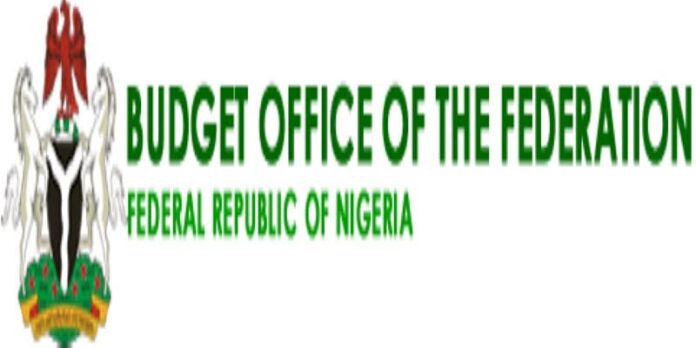Budget Office warns of trouble over growing debt
By Jeph Ajobaju, Chief Copy Editor
Nigeria’s debt-to-revenue ratio has left it with a “limited borrowing space” that will lead to great “trouble” if Abuja exceeds its limits, the Budget Office of the Federation has warned.
Budget Office Director General Ben Akabueze sounded the alarm when he addressed National Assembly (NASS) members-elect at their induction in Abuja on Wednesday.
He explained that Nigeria remains healthy with its debt-to-GDP ratio but is not with debt-to-revenue ratio.
The World Bank says Nigeria spends 96 per cent of revenue to service debt, a ratio disputed by Finance Minister Zainah Ahmed who put the figure at 86 per cent.
Akabueze was speaking to members of the NASS which considers, amends, and passes annual budgets and finance bills presented by the executive.
“You may have heard that we have one of the lowest Gross Domestic Products-to-debt ratios in the world,” he said.
“While the size of the federal government budget for 2023 created some excitement, the aggregate budget of all the governments in the country amount to about N30 trillion. That is less than 15 per cent in terms of ratio to GDP.
“Even on the African continent, the ratio of spending is about 20 per cent. South Africa is about 30 per cent; Morocco is about 40 per cent. And at 15 per cent, that is too small for our needs. That is why there is fierce competition for the limited resources.
“That can determine how much we can relatively borrow. We now have very limited borrowing space; not because our debt to GDP is high, but because our revenue is too small to sustain the size of our debt.
“That explains our high debt service ratio. Once a country’s debt service ratio exceeds 30 per cent, that country is in trouble and we are pushing towards 100 per cent, and that tells you how much trouble we are in.
“We have limited space to borrow. When you take how much you can generate in terms of revenue and what you can reasonably borrow, that establishes the size of the budget. The next thing would be to pay attention to the government’s priority regarding what project gets what.”
__________________________________________________________________
Related articles:
World Bank alarmed as Nigeria spends 96% revenue on debt servicing
National debt shoots up to N46.25tr
Buhari mounts up $40b national debt for his successor
__________________________________________________________________
Nigeria not an oil-rich economy
“We are not even an oil-rich economy. To classify oil-rich economies, you talk of countries like Saudi Arabia where there are 34 million of them and pump 10 million barrels of crude per day, or Kuwait where there are 3 million of them and pump three million barrels per day.”
Nigeria has a population of over 200 million, and “we are currently pumping about 1.9 million barrels per day,” Akabueze said, per The PUNCH.
“So, we are not a rich economy and must resist the temptation we are an oil-rich economy. Let me make it clear that we are a potentially rich country, but we are not.”
Akabueze noted that Nigerians often say the country is not short of development plans but has a problem with implementation. “I disagree because a plan that cannot speak to implementation is not a good plan.”
He said development plans in Nigeria date back to the early 90s.
“But you can argue that it has not been successful in the desired manner. Annual budgets are essentially back sizes of development plans. They contain achievable objectives within a year. A budget that sits outside the development plan is not a good budget.”




